***Contains spoilers for episode seven of the recently released Netflix exclusive, Master of None***
“I think she really liked me. But she did go home with that guy she was making out with. Girls are so annoying.”
These are the words spoken by Arnold (played by Eric Warenheim) to Dev (Aziz Ansari as the show’s protagonist) as they leave the bar together. Through the first six episodes of the series, it is established with a pretty solid foundation, that Arnold is basically a lovable idiot. He’s ‘that guy’ in a comedic show that says extremely flawed and often hilarious shit to act more as the unintelligent counter-argument in a discussion or as fodder for the other more reasonable characters to react to. In essence, it’s a humorous and throwaway line only because we know that Arnold is dumb and harmless. But it is suggestive of what will follow in rest of the episode, essentially, the view that men often have towards women and the world they inhabit that must incorporate them, the man. Again, they are beginning their trek home as two guys in the New York night having experienced, for them, a “bad night.”
Before this, we were introduced to Diana (played by Condola Rashad) who is sitting at the bar minding her own business when she is approached by a stranger (Brian Berrebbi).
“Hi my name is Derek and I just bought us both shots of tequila.”
“Oh, I don’t really want a shot.”
“So, I just paid for these and now I have to throw them out?”
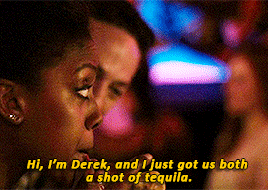
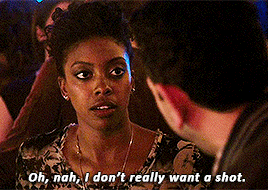
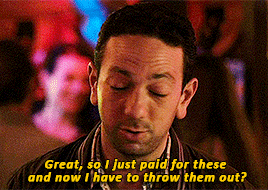
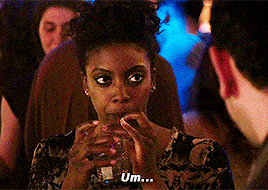


The rub here is obvious, creepy and aggressive guy introduces himself by trying to purchase an introduction (via the shots) and his next sentence to her is bitterness towards her not accepting the invitation to drink with him. Now this is a comedic show (or a dramedy, if you will). They could’ve found a way to pull humor out of this awkward interaction. But it isn’t there by design. It’s just uncomfortable and worrisome. Primarily, because it’s not exaggerated or hyperbole in anyway. This scenario, plays out constantly, where a guy makes and advance, is rebuffed and then reacts in a way of that suggests that the woman has not fulfilled some obligation to him. The character, Diana, exits from the conversation as quickly as she can – which by the way – has to be done by physically moving herself away from where she was originally, first.
Jumping ahead to the aforementioned walk home, Arnold and Dev are walking home together where their primary care or topic of conversation is intentionally irrelevant. Arnold remarks how cold it is and Dev responds with how it is supposed to be nicer tomorrow. Then, in a bit of quirky genius, Dev follows that up with “you want to keep talking about the weather?” The odd continuation of that dialogue says a couple of things.
1) It’s a nod to weather typically being the topic of conversation that is a default when there is nothing else of interest to talk about. It’s what we talk about with strangers or acquaintances that are basically strangers. It’s basically a universal running gag between folks that literally having nothing else of pressing interest to concern. If you talk to a friend about the weather for more than five minutes (outside of some existing major weather event being present), you two probably aren’t as close as you thought you were.
2) It shows that these guys have no other earthly concern while walking home late at night in a huge city. Dev begins to ramble on some crazy theory about how the temperature inside should match what the temperature is outside so that he’s not hot when he’s indoors (because naturally, he dressed for the weather). These are their peak concerns.
Of course it is juxtaposed with Diana, whose friends all took different ways home and leaves her to walk home alone. Diana isn’t worried about the weather or if businesses should make it colder outside because of the windchill to accommodate her outfit. Diana is doing what many women, but few men worry about: being attacked at night, just because. She’s crossing the street to distance herself from strangers. Dialing 9-1-_ just to ready herself.
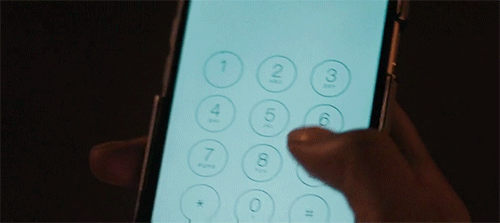
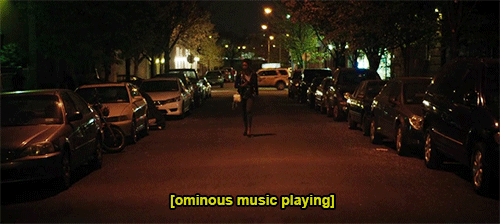
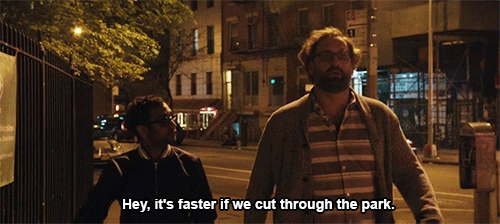
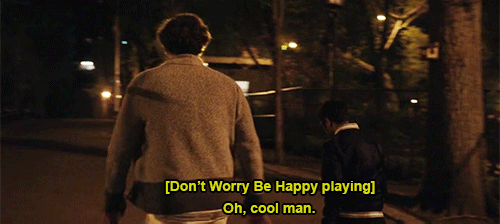
Cutting back to Arnold and Dev, Dev suggests cutting through the park because it’s quicker. Again, at night. No worries. Meanwhile, Diana has walked a few blocks and still Derek from the bar has followed her home. Again, this could be written off as some comedic situation, but it isn’t. This could be looked at as hyperbole in media, but it isn’t. The number of women that have an experience of being followed home is probably higher than you think. And then higher still. It’s one of those things, like sexism and racism, where people that live in the privilege of not having to deal with that kind of danger, have a tendency to dismiss it. It hints at more treacherous world than the one we want to believe we live in.
While Diana is finding refuge in her home while drunk Derek (not an absolution by the way, just a description) bangs on her apartment door, Dev is freaking out about stepping in dog shit on his walk with Arnold. Suspense music is playing while Derek yells outside of Diana’s home as “Don’t Worry Be Happy” plays in the background of Dev’s very disappointing walk with Arnold. It isn’t subtle or even with any Shakespearean complexity. But it is accurate if nothing else.
The next scene reveals that Diana is actually an actress, working on same commercial that Dev is. Between shoots, the two realize they were at the same bar the past weekend. When Diana asks Dev how it was for him, he launches into how terrible it was for him. Not being able to get a drink in a timely fashion. Stepping in dog shit and ruining his favorite shoes. Of course, as polite conversation dictates, he asks Diana how her night was after his droning which gives her pause before it cuts to the title screen. If nothing else, this is Ansari’s dig at male privilege. The mundane and inconsequential things he obsessed over from that night in comparison to the emotions that Diana felt, for no other reason than their differing genders is highlighted.
The following scene is basically the default stance of the well meaning guy: shock and disbelief of what women actually deal with on a day to day basis. Being followed and stalked or setting your social media handles to private because of aggressive commentary are all pretty unique issues that guys deal with a lot less. The comedic portion of this scene is handled by Dev in a passive, but also common trait that disbelievers do in these conversations: derailing. Dev (humorously) goes off on tangents of the unimportant details of the testimonies, forcing the storyteller to get him back on track to what the conversation is actually about. I say a passive form, because derailing in a malicious state often incorporates victim blaming, deflection of the actual claim or being dismissive. The affect is the same however, a refusal to actually deal with the topic of women’s safety and comfort because of the actions of men.
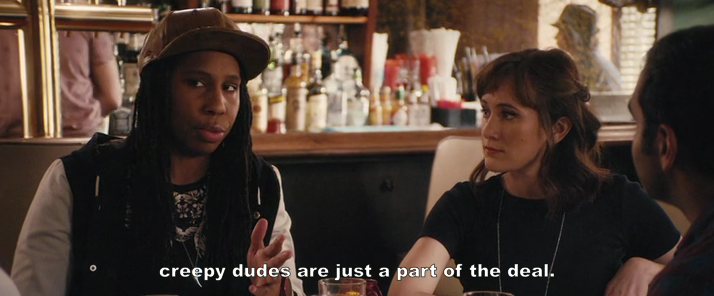
Arthur’s small contribution to the conversation comes from him declaring himself a feminist, and then giving the very vanilla yet accurate definition: someone that wants equal rights and treatment for men and women. Denise (played the hilarious Lena Waithe) remarks that she’s actually surprised that Arthur knows that. That’s definitely a dig at the character, because he’s pretty dumb, but a dig at the culture that pushes back against feminism as well. Those that rail against feminism most likely don’t know what it’s actual intent is (spoiler: it’s not male genocide) or don’t care, because it gives them, the privileged something to protest.
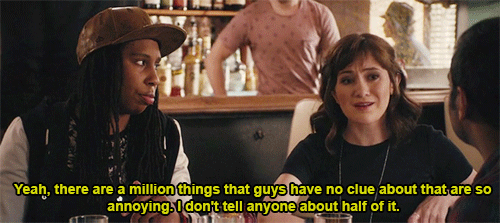
There are other big hallmarks that occur in episode like Rachel and Arnold’s role reversal of “the negotiator” when Rachel goes to pick up a couch on Craig’s List or Dev and Denise making a citizen’s arrest on a pervert on the subway, but the biggest takeaway happens in the second half of the episode. Dev is newly embracing his feminist pulse. He’s telling the story of his involvement in getting a pervert arrested, with all the women from his commercial shoot. Between drinks and shots, he starts bringing up the wage gap and women’s safety and saying all the right things. Again, when surrounded by women. Dev means what he says, but he also craves the validation of his audience. They are praising him for his progressive views and he loves every second of it. Dev’s euphoria pushes him to confront the director (a guy) about the commercial and how it’s actually sexist. He’s asking questions like: Why is it a guy’s barbecue? Why can only thin and socially accepted beautiful women only be in these commercials? Why are they committed to the background? The director seems uncomfortable with Dev’s interrogation and quickly excuses himself. It leaves Dev feeling a sense of accomplishment: he took his new found feminist knowledge and “took it to the man.”
The crux of this, of course, falls apart in the next scene. Heading to his trailer, Dev sees he’s been written out of the commercial he previously had the starring role in. The impulse is to think that Dev’s speaking out for the women in the commercial got him thrown off it, but in talking to the director he learns its quite the opposite. The director has decided to take Dev’s words to heart and actually changed the commercial to put the women front and center. Diana now has Dev’s previous role, it’s a cookout organized by a woman with men there just in the background and Dev is the sacrificial lamb. The director feels bad about it and gives Dev a small, one line role near the end of the commercial. This is ill-fated however as Dev’s short stature doesn’t look right when he’s holding a rake (director: God, it looks like we’re selling giant rakes). Dev is booted from the commercial altogether when Anush (a character we were introduced to previously), who happens to be a jacked and gorgeous looking Indian man takes his place because the rake doesn’t dwarf him like it does Dev. Dev is booted from his role because he put the idea of women leading in the director’s ear, but loses out on being in the commercial at all because of his aesthetics. The irony is deliberate and brilliant. Dev, in the smallest of fractions, gets to see what it’s like for the women he was fiercely protecting.
Of course, this leads to Dev sulking, who still gets to attend the wrap party for the commercial. The women on the commercial thank him and try to cheer him up, but having suffered personal sacrifice for his actions, Dev isn’t in a jovial mood for what he accomplished. This is exactly where the well meaning, new to this whole feminism, male ally thing runs into trouble. When it’s not happening inside of a vacuum or as some hypothetical. Dev couldn’t not be more in the zone when he was yukking it up with his women costars and running down statistics for how they should be treated better. When it led to him not being able to have exactly what he wanted, well, his enthusiasm for feminism wanes a bit. I’m not sure if I’ve seen a TV show capture this side of it, to show the theoretical and the real world application of feminism for the male ally who still doesn’t actually get it, no matter how progressive they are.
The pinnacle of this revelation and then de-evolution of Dev’s new sense of fairness hits when the director of the commercial is greeting everyone at the table. He shakes hands with Dev and Arnold, but ignores Rachel and Denise before leaving. When Rachel and Denise immediately point out how messed up that was and how that happens all the time, Dev falls back to the “I don’t think that’s what that was, I’m sure he didn’t do that on purpose.” Deflection. Denial. Justification. This particular scene is about sexism, but this applies to any situation where the privileged person in a situation refuses to acknowledge the grievances of the disenfranchised group because of the discomfort they feel acknowledging it. Dev claims that Rachel is imagining the slight, while Rachel is disgusted that Dev is 1) denying what he saw what his own eyes, and 2) would work so hard to explain away an issue even at the behest of her word telling him otherwise. Welcome to just about every conversation I’ve had about race with a well meaning White friend that gave me 20 reasons why what I was experiencing, I wasn’t really experiencing.
One of the good things about Master of None is that Dev is a really good guy on the show, but he isn’t always THE good guy, and this episode is evidence of that. By the end, he apologizes to Rachel for mansplaining away her issue with the director snubbing her. One of the last exchanges though, is perfect, if not a bit of fantasy as those of us who have had to take a position that Rachel does, rarely get this understanding.
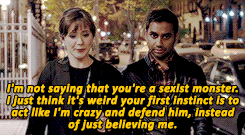
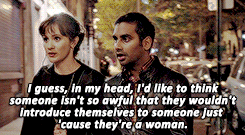
Dev – “Okay. I get that. I guess there’s no way of knowing what it’s like to be in your shoes so… I’ll try to do a better job of listening, all right.”
Do you know how many friendships could be saved by that kind of exchange in real life? I feel like that’s a step towards world peace. But this episode addresses privilege in a way I don’t know that we’ve seen a TV show do. The progressions and themes are perfectly constructed, the revelations are thoughtful and genuine and the resolution brings the offender into an understanding without making him the perfect defender of social justice. Necessary viewing. Period.
Are you following Black Nerd Problems on Twitter, Facebook, Tumblr or Google+?


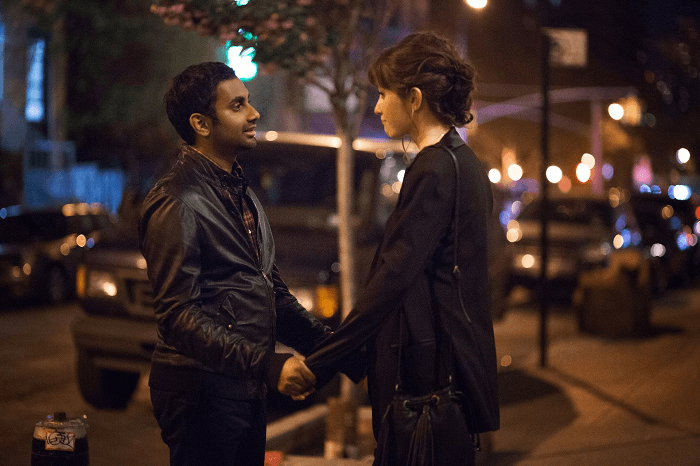
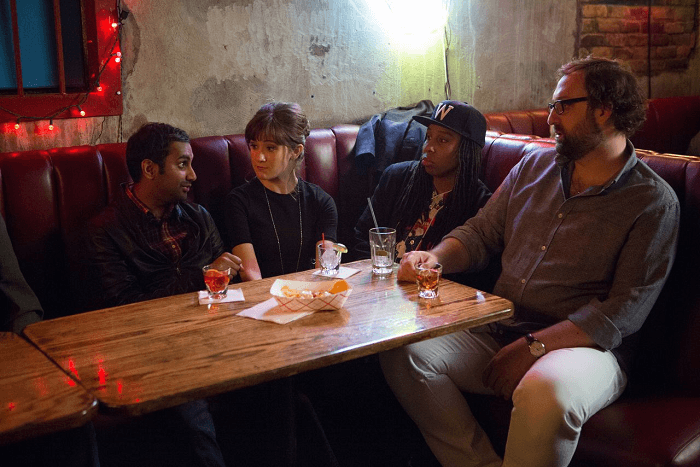
Show Comments